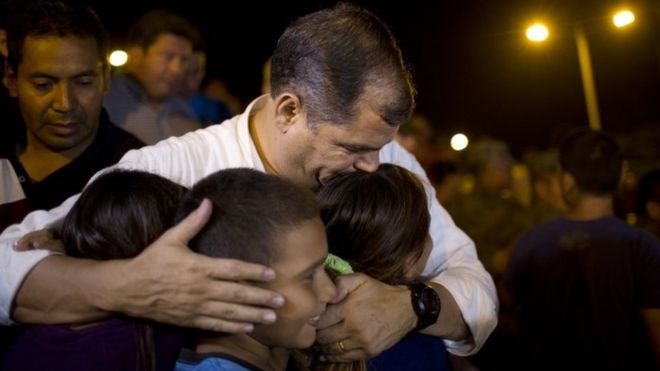
President Rafael Correa has warned that Ecuador’s suffering is not yet over
The number of people killed in a powerful earthquake that struck Ecuador over the weekend has risen to about 350, the government has said.
There have been desperate scenes as rescuers and family members searched for survivors, often with bare hands.
Teams from Switzerland, Spain and several Latin American countries have arrived to join the search effort.
More than 2,000 people were injured in the quake, Ecuador’s most powerful in decades, which hit its Pacific coast.
Earlier, President Rafael Correa warned that the death toll was likely to rise, and said there were still people alive under the rubble of collapsed buildings.
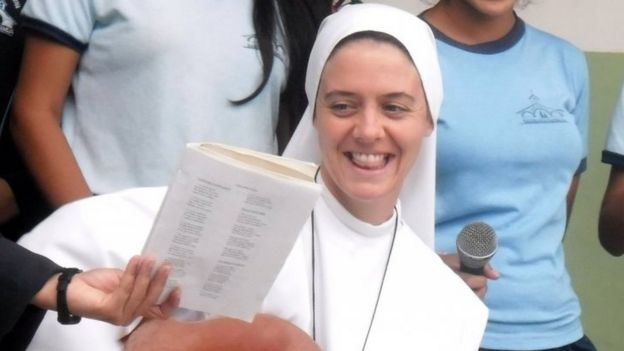
Nun Clare Theresa Crockett, from Northern Ireland, was killed when the quake destroyed her school in the Ecuadorean town of Playa Prieta
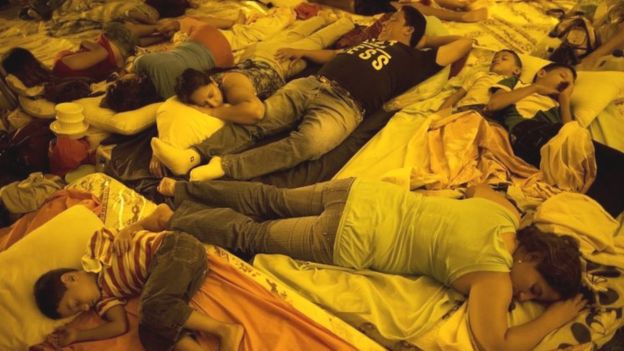
Some people left homeless by the quake had to sleep under a makeshift emergency shelter outside the main emergency centre in the town of Portoviejo
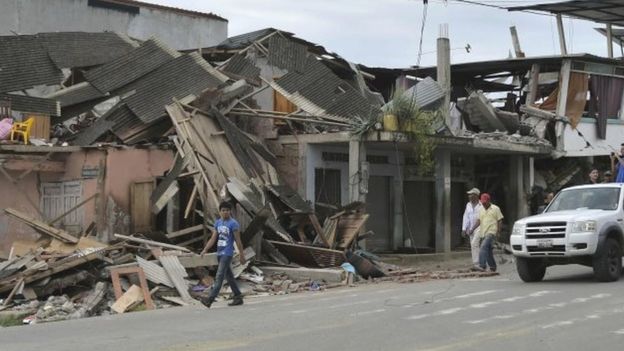
Much of the city of Pedernales was flattened
President Correa visited some of the people affected by the disaster after cutting short a visit to Italy to return to his home country.
“I fear that figure will go up because we keep on removing rubble,” a shaken Mr Correa said in a televised address. “There are signs of life in the rubble, and that is being prioritised.”
The president warned that the quake will cost Ecuador billions of dollars. It comes at a time when the oil-producing country is already reeling from the slump in global crude prices.
Correspondents say that while the country’s energy industry survived the quake mostly intact – the main refinery of Esmeraldas was closed as a precaution – exports of bananas, flowers, cocoa beans and fish could be delayed because of impassable roads and hold-ups at ports.
Foreign Minister Guillaume Long praised those nations which had contributed to the rescue effort.
He tweeted (in Spanish) that as many as 120 mobile rescue teams would be on the ground by Tuesday morning.
Derry nun killed in earthquake
-
- In pictures: Ecuador earthquake
- Ecuador quake – your stories
- History of deadly earthquakes
- Can quakes be predicted?
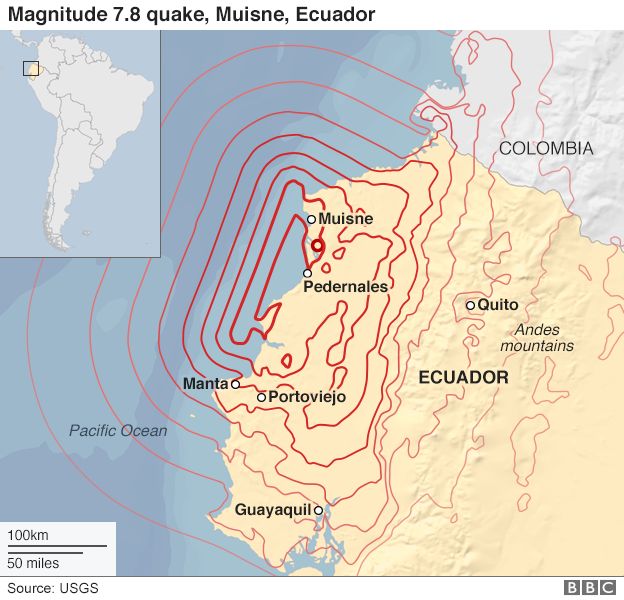
The magnitude-7.8 quake struck on Saturday evening. Coastal areas in the north-west were closest to the epicentre. There have been about 230 aftershocks across the country.
A state of emergency has been declared and some 10,000 troops and 3,500 police have been deployed in the affected areas.
In Pedernales, close to the epicentre, as many as 400 people are feared dead. Mayor Gabriel Alcivar said the “entire town” had been flattened.
“Pedernales is devastated. Buildings have fallen down, especially hotels where there are lots of tourists staying. There are lots of dead bodies,” he told local media.
“We’re trying to do the most we can but there’s almost nothing we can do,” he added, warning that looting had broken out.
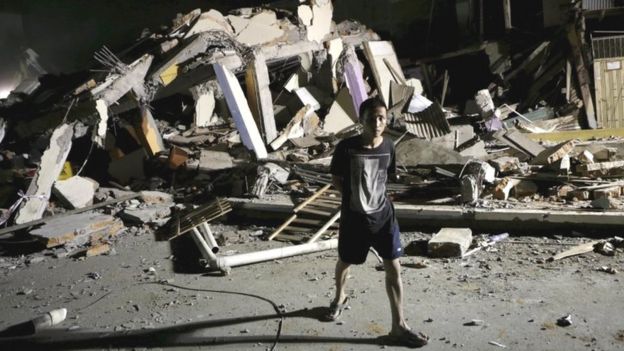
Residents in the city of Portoviejo have complained of the stench of decaying bodies
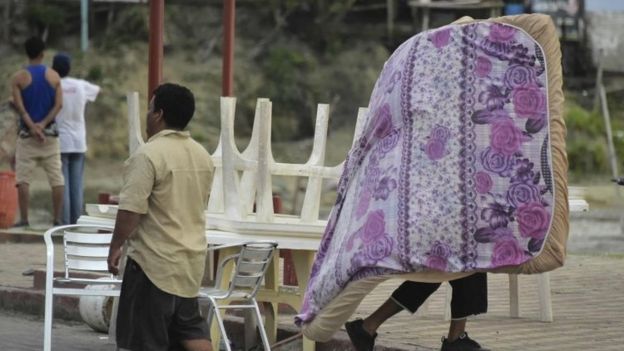
Many residents in Pedernales are having to sleep outside
More than 600 people have been treated for injuries at tents in the town’s football stadium, with many others taken by ambulance or helicopter to regional hospitals. The stadium also served as a makeshift morgue, Reuters reported, with at least 90 bodies taken there.
Many residents of the town are due to spend Monday night sleeping outside on mattresses in muggy and tropical conditions and afraid of more aftershocks.
Firefighters throughout Monday conducted rescue operations in destroyed buildings, demanding silence so they could listen for cries for help.
Meanwhile, queues for essential supplies such as bottled water, blankets and food formed around the stadium’s walls, as residents complained that electricity shortages were preventing them from using mobile phones to contact loved ones.
“There’s nothing left of the houses and nowhere safe to stay,” resident Betty Reyna, 44, told Reuters as she camped out with members of her family.
More than 1,000 policemen are patrolling the streets of Pedernales ahead of an expected visit by the president.
BBC
 Q FM Africa's Modern Radio
Q FM Africa's Modern Radio